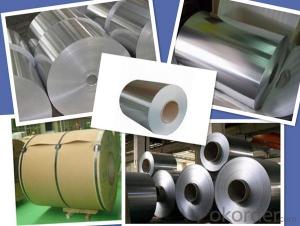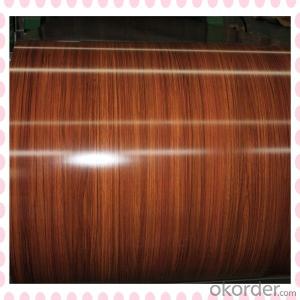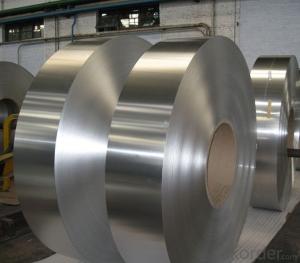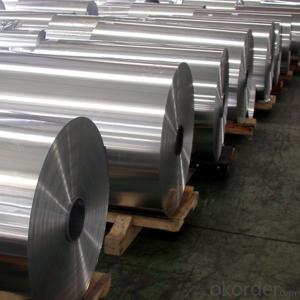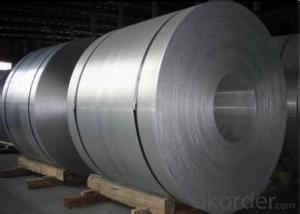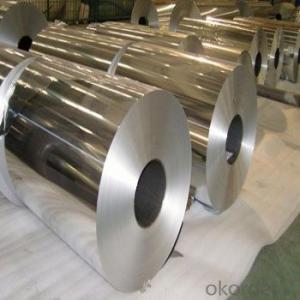Bare Aluminum Coil Stock 2024 Mill Finished Aluminum Rolls for Automotive Spare Parts
- Loading Port:
- Shanghai
- Payment Terms:
- TT OR LC
- Min Order Qty:
- 5 m.t.
- Supply Capability:
- 10000 m.t./month
OKorder Service Pledge
OKorder Financial Service
You Might Also Like
Specification
1. Specification of Mill Finished Aluminum Rolls 2024 for Automotive Spare Parts
characteristics | Application |
1) Super peeling strength | 1) Building exterior curtain walls |
2) Excellent surface flatness and smoothness | 2) Decoration and renovation additions for old buildings |
3) Superior weather, corrosion, pollutant resistance | 3) Decoration of interior walls, ceilings, bathrooms, kitchens and balconies |
4) Even coating, various colors | 4) Shop door decorations |
5) Fireproof, excellent heat and sound insulation | 5) Advertisement board display platforms and signboards |
6) Superior impact resistance | 6) Wallboards and ceilings for tunnels |
7) Lightweight and easy to process | 7) Industrial materials, materials for vehicles and boats |
2. Application of Mill Finished Aluminum Rolls 2024 for Automotive Spare Parts
(1).Interior: wall cladding, ceilings, bathrooms, kitchens and balconies, shutters, doors...
(2).Exterior: wall cladding, facades, roofing, canopies, tunnels,column covers , renovations...
(3).Advertisement: display platforms, signboards, fascia, shop fronts...
3. Feature of Mill Finished Aluminum Rolls 2024 for Automotive Spare Parts
*Such coil is specially designed to replace aluminum ingot, due to the high export tax of aluminum ingot, the coil has better price than ingot.
*This type of coil can fit customer's remelting furnace just like ingot, no need to make any change to the production line that was previously used for ingot. The standard coil size and weight is very suitable for the feed gate of furnace.
*This type of coil causes less material wastage than ingot when remelted.
*Our coil is made directly from ore, no need to go though the ingot making process, quality is much better than other suppliers who use ingot scrap to make coil.
Be free from Oil Stain, Dent, Inclusion, Scratches, Stain, Oxide Dicoloration, Breaks, Corrosion, Roll Marks, Dirt Streaks and other defect which will interfere with use
4. Certificate:
SGS and ROHS(if client request, paid by client), MTC(plant provided), Certificate of Origin(FORM A, FORM E, CO), Bureau Veritas and SGS (if client request, paid by client), CIQS certificate
5. Image of Mill Finished Aluminum Rolls 2024 for Automotive Spare Parts
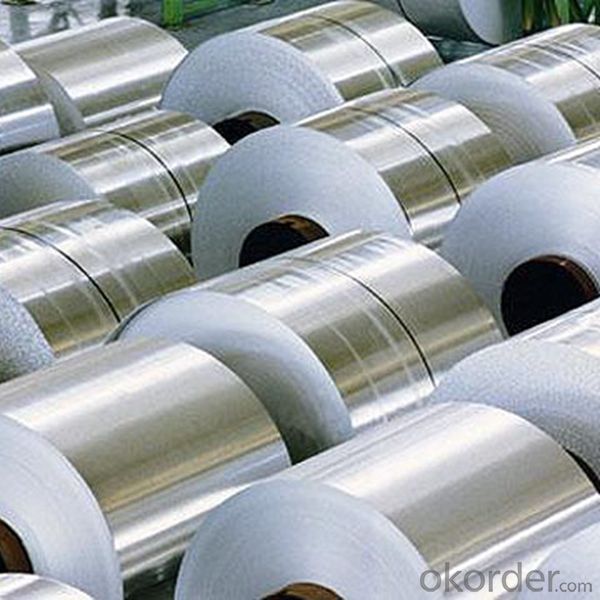
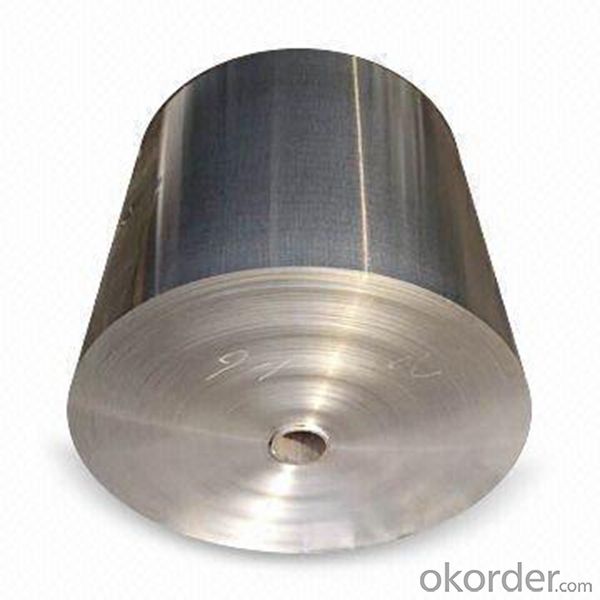
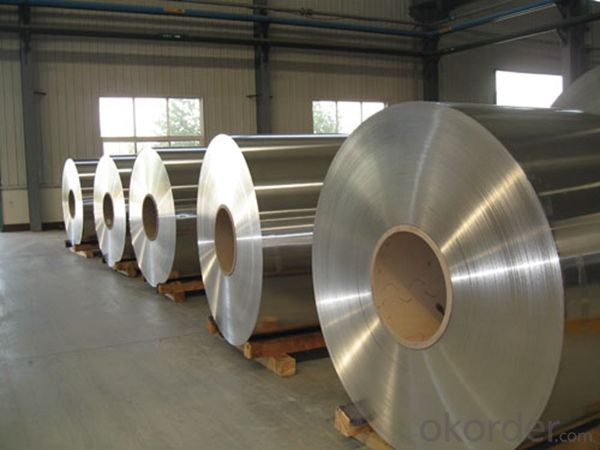
6. Package and shipping of Mill Finished Aluminum Rolls 2024 for Automotive Spare Parts
eye to wall
eye to the wall
with wood pallet (wooded case also available)
7. FAQ
1) What is the delivery time?
Dpends on actual order, around 20 to 35 days
2)What is the QC system:
We have QC staff of 20 persons and advanced equipment, each production is with MTC traced from Aluminum ingot lot.
3) What market do you mainly sell to?
Australia, America, Asia, Middle East, Western Europe, Africa etc
- Q: Can aluminum coils be used in corrosive gas environments?
- Yes, aluminum coils can be used in corrosive gas environments. Aluminum is known for its excellent corrosion resistance, especially in atmospheric conditions. It forms a protective oxide layer on the surface that protects the metal from further corrosion. However, it is important to note that aluminum can be susceptible to certain corrosive gases, such as chloride and sulfur compounds. In such cases, additional protective measures, such as surface treatment or coating, may be necessary to ensure the longevity and performance of the aluminum coils in corrosive gas environments.
- Q: Can aluminum coils be used in the production of aluminum sandwich panels?
- Aluminum sandwich panels can indeed utilize aluminum coils. Typically, these coils serve as the outer skins or facings of the panels. To enhance their durability, resistance to corrosion, and aesthetic appeal, the coils undergo initial processing and coating. This process ensures that they possess the desired qualities. Subsequently, they are bonded with a core material, such as polyethylene or mineral wool, to create a sandwich panel structure that is both lightweight and rigid. The inclusion of aluminum coils provides the panels with exceptional mechanical properties, including a high strength-to-weight ratio, flexibility, and thermal conductivity. Moreover, the use of aluminum coils enables convenient customization as they can be formed, shaped, and painted to meet specific design and specification requirements.
- Q: is Aluminum wrotten with a 2 behnd it?
- alminum has an atomic number of 13 and it gives has electrons in its outer most shell and so aluminium is written as al+3 and the formulae for aluminium blending with say oxygen is Al2o3 where aluminium gets al the three molecules while oxygen gets al two molecules this is expalined by the criss cross method in chemistry for compound formulaes
- Q: The question asks if magnetic induction can be used to inspect the quality of an aluminum coil.
- <p>No, you cannot use magnetic induction to inspect the quality of an aluminum coil. Magnetic induction is a method used to detect flaws or discontinuities in ferromagnetic materials, such as steel, by inducing eddy currents. Aluminum is not a ferromagnetic material, so it does not retain magnetism or support the formation of eddy currents in the same way. Instead, other non-destructive testing methods like ultrasonic testing or radiographic testing may be more appropriate for inspecting the quality of aluminum coils.</p>
- Q: How are aluminum coils used in the manufacturing of household appliances?
- Aluminum coils are used in the manufacturing of household appliances as they provide excellent conductivity, durability, and corrosion resistance. These coils are commonly used in appliances such as refrigerators, air conditioners, and heating systems. They help in transferring heat efficiently, improving energy efficiency, and ensuring the longevity of the appliance. Additionally, aluminum coils are lightweight, making them easier to handle during the manufacturing process.
- Q: I was told today that taking aluminium inside your body greatly increases the chance of getting alzheimers as they destroy cells. What foods contain aluminium?
- commonly adjuvants have aluminum in them
- Q: Are aluminum coils suitable for reflective insulation?
- Yes, aluminum coils are suitable for reflective insulation. Aluminum is a highly reflective material that can effectively reflect heat and light, making it an excellent choice for insulation applications that require thermal control and energy efficiency.
- Q: How are aluminum coils used in the production of architectural structures?
- Due to their advantageous properties, aluminum coils play a crucial role in the production of architectural structures. Their lightweight, strength, and corrosion resistance make them highly valued in the construction industry. Roofing systems in architectural structures commonly utilize aluminum coils. The lightweight nature of aluminum makes installation easy and reduces the overall load on the building. Additionally, aluminum's corrosion resistance ensures that the roofing system remains durable and long-lasting, regardless of weather conditions. Aluminum coils are also employed in the creation of exterior cladding systems. Their ability to be formed into various shapes and sizes allows for the development of unique and visually appealing architectural designs. Furthermore, aluminum's resistance to corrosion and ability to withstand harsh environmental factors make it an ideal choice for cladding systems, guaranteeing the structure's longevity and aesthetics. Windows and doors in architectural structures often incorporate aluminum coils in their production. The lightweight properties of aluminum make handling and installation effortless, while its high strength provides structural integrity to these components. Furthermore, aluminum's corrosion resistance results in long-lasting windows and doors that require minimal maintenance. In summary, aluminum coils are an essential component in the production of architectural structures. Their lightweight, strength, and corrosion resistance make them the preferred choice for roofing, cladding, windows, and doors. By utilizing aluminum coils, architects and builders can create sustainable structures that are durable, aesthetically pleasing, and withstand the test of time.
- Q: Is it safe to use steel wires for making jewelry or decorative items, and are there any potential health hazards associated with it?
- <p>Using steel wires for jewelry or decorations generally poses minimal health risks when used properly. However, there are a few considerations: allergic reactions can occur in individuals sensitive to nickel, which is often found in stainless steel. Additionally, improper use or sharp edges can lead to cuts or injuries. It's important to ensure that the steel is of high quality and that any jewelry made is smooth and free of sharp points to minimize the risk of injury. Regular cleaning and maintenance are also recommended to prevent any potential health risks associated with bacteria buildup or skin irritation.</p>
- Q: i am thnking of building my own aluminum john boat and using the propulsion from a jetski to power it, i was wondering if anyone had taken on a project like this and had a few pieces of advice to offer while i am still in the planning stages. the biggest concern i have right now involves the tunnel for the intake, should i use the original fiberglass from the jetski or build up a tunnel out of aluminum for it?
- While I have not built a john boat of aluminum, I have built or fabricated a lot of other things. If this were my project, and as it is the scoop you are talking about, not the tunnel itself. Aluminum is one of the most expansive metals, and I do not see you being able to seal a fiberglass/aluminum interface with much promise of it holding long term. I would fabricate or mold a new one of aluminum so it would have the same expansion rate as the metal around it. Electrolysis is not an issue, but I think the thermal expansion difference would be on the seals. good luck on your project, sounds fun.
Send your message to us
Bare Aluminum Coil Stock 2024 Mill Finished Aluminum Rolls for Automotive Spare Parts
- Loading Port:
- Shanghai
- Payment Terms:
- TT OR LC
- Min Order Qty:
- 5 m.t.
- Supply Capability:
- 10000 m.t./month
OKorder Service Pledge
OKorder Financial Service
Similar products
Hot products
Hot Searches
Related keywords
